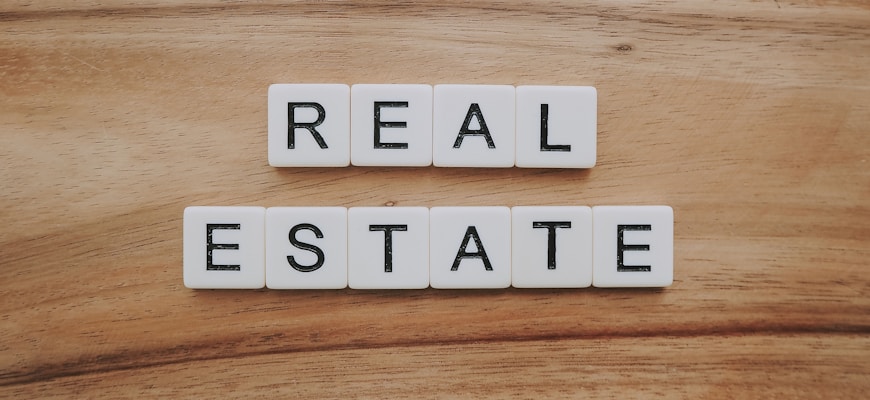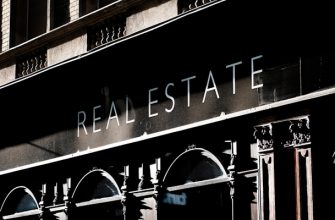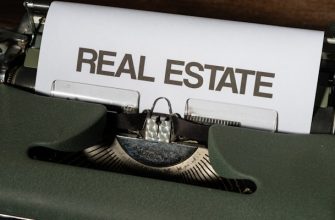- Understanding RWA Compliance: A Guide for Tokenized Real Estate Investors
- Key Regulations Impacting Tokenized Real Estate Investments
- Navigating the RWA Compliance Landscape: Best Practices for Investors
- The Importance of Due Diligence in Tokenized Real Estate Transactions
- How RWA Compliance Enhances Trust and Transparency in Real Estate Tokens
- Future Trends in RWA Compliance: What Investors Need to Know
Understanding RWA Compliance: A Guide for Tokenized Real Estate Investors
Understanding RWA compliance is crucial for investors engaging in tokenized real estate. Real-world assets (RWA) refer to physical assets that can be tokenized and traded on blockchain platforms. RWA compliance ensures that these investments adhere to legal and regulatory standards, safeguarding investor interests.
Investors in tokenized real estate must familiarize themselves with various compliance requirements. These include regulatory frameworks, anti-money laundering (AML) protocols, and know your customer (KYC) guidelines. Compliance with these regulations is essential for maintaining the integrity of tokenized investments and fostering trust among stakeholders.
- Regulatory Frameworks: Different jurisdictions have unique regulations that govern tokenized real estate. Understanding local laws is vital for legal compliance.
- AML Protocols: Anti-money laundering measures are imposed to prevent illicit activities. Adhering to AML protocols is necessary for ensuring the legitimacy of tokenized transactions.
- KYC Guidelines: Know your customer processes involve verifying the identities of investors. This step is critical for maintaining transparency in tokenized real estate investments.
Investors should also be aware of the importance of regular audits and assessments to ensure ongoing compliance. Engaging with legal experts and compliance specialists can provide valuable insights into the intricacies of RWA compliance. This proactive approach not only mitigates risks but also enhances the credibility of tokenized real estate projects.
In summary, understanding RWA compliance is essential for anyone looking to invest in tokenized real estate. By adhering to regulatory frameworks, AML protocols, and KYC guidelines, investors can secure their investments and contribute to a trustworthy ecosystem for tokenized assets.
Key Regulations Impacting Tokenized Real Estate Investments
Tokenized real estate investments are increasingly gaining traction, but navigating the complex landscape of regulations is essential for ensuring compliance and security. Various key regulations significantly impact how investors engage with tokenized assets in the real estate sector. It is critical to understand these frameworks to mitigate risks associated with tokenized real estate investments.
- Securities Regulation: In many jurisdictions, tokenized real estate assets may be classified as securities. This classification subjects them to stringent securities laws, requiring proper registration or exemption filings to protect investors.
- Anti-Money Laundering (AML) Compliance: Implementing AML regulations is vital to prevent illicit activities in tokenized real estate transactions. Investors and platforms must conduct thorough due diligence and know-your-customer (KYC) procedures.
- Taxation Guidelines: Understanding the tax implications of tokenized real estate investments is crucial. Different jurisdictions have varying tax obligations for capital gains, income, and property taxes associated with tokenized assets.
- Property Rights and Ownership Laws: Tokenization must align with existing property rights laws to ensure that ownership is legally recognized. This includes understanding how digital tokens correspond to physical property rights.
- Consumer Protection Regulations: To safeguard investors, consumer protection laws may require transparency regarding risks, fees, and other critical information related to tokenized real estate investments.
In summary, navigating the regulatory landscape is imperative for those looking to invest in tokenized real estate. By adhering to securities regulations, implementing AML compliance, understanding taxation guidelines, respecting property rights, and following consumer protection regulations, investors can foster a safer environment for tokenized real estate investments. This diligent approach not only enhances security but also builds trust in the growing market of tokenized real estate assets.
Navigating the RWA Compliance Landscape: Best Practices for Investors
Understanding the intricacies of RWA (Real World Asset) compliance is crucial for investors seeking to navigate the evolving landscape of tokenized real estate. Compliance not only ensures adherence to legal frameworks but also fosters investor confidence and safeguards investment integrity.
- Conduct thorough due diligence: Investors should evaluate the underlying assets and the regulatory environment. This includes reviewing legal documentation and ensuring that the tokenization process adheres to local laws.
- Engage with regulatory bodies: Establishing communication with regulatory authorities can provide insights into compliance requirements and help in staying updated with changes in legislation.
- Implement best compliance practices: Adopting industry standards and best practices ensures that tokenized real estate offerings meet compliance benchmarks, which is crucial for legal security and market acceptance.
- Utilize compliance technologies: Leveraging advanced technologies can streamline compliance processes, making it easier to track and report necessary information related to tokenized assets.
- Regularly review and update compliance strategies: As the regulatory landscape evolves, continuous assessment and adaptation of compliance frameworks are essential to maintain alignment with current laws.
By following these best practices, investors can effectively navigate the RWA compliance landscape, minimizing risks and maximizing the potential for successful investments in tokenized real estate. A proactive approach to compliance not only protects investments but also enhances overall market credibility.
The Importance of Due Diligence in Tokenized Real Estate Transactions
In the realm of tokenized real estate transactions, due diligence plays a critical role, ensuring that all aspects of the investment are thoroughly examined before any commitments are made. This process involves a comprehensive assessment of the property, its legal status, and the potential risks associated with the investment. The significance of due diligence cannot be overstated, especially in the context of Real World Assets (RWA) compliance.
Conducting meticulous due diligence helps investors identify essential factors that could impact the safety and profitability of their investments in tokenized real estate. Key components of this process include:
- Property Valuation: Accurate valuation of the tokenized property ensures that investors are aware of the market price and investment potential.
- Legal Verification: Confirming the legality of the property and its ownership prevents future disputes and legal complications.
- Market Analysis: Analyzing market trends helps in understanding the demand and potential appreciation of the tokenized asset.
- Financial Review: Examining the financial records associated with the property provides insight into its profitability and operational costs.
- Compliance Check: Ensuring that the tokenized real estate adheres to local laws and regulations is vital for safeguarding investments.
Investors must recognize that thorough due diligence is not merely a formality but a fundamental step that mitigates risks and enhances the likelihood of successful investment outcomes in the tokenized real estate market. By prioritizing due diligence, stakeholders in tokenized assets can foster a more secure and transparent investment environment, ultimately leading to greater confidence in RWA compliance and responsible investing practices.
How RWA Compliance Enhances Trust and Transparency in Real Estate Tokens
Real-world asset (RWA) compliance plays a critical role in enhancing trust and transparency within the realm of tokenized real estate. By adhering to stringent regulatory standards, real estate tokenization projects can foster confidence among investors, ensuring that their investments are secure and well-regulated. This compliance not only protects the interests of investors but also contributes to the overall legitimacy of the tokenized real estate market.
One of the primary ways RWA compliance enhances trust is through rigorous due diligence processes. These processes confirm the authenticity of the underlying assets and verify ownership, which is essential in minimizing risks associated with fraud. Investors can rest assured that their investments in tokenized real estate are backed by tangible assets that comply with relevant laws and regulations.
Transparency is another vital aspect of RWA compliance. By maintaining clear and open communication regarding asset management and performance, tokenized real estate platforms can build a strong relationship with their investors. Regular updates and disclosures about asset valuations, rental income, and other financial metrics provide investors with a comprehensive understanding of their investments, fostering a sense of security.
Moreover, RWA compliance ensures that tokenized real estate projects are evaluated based on established criteria, making it easier for investors to compare different opportunities. This standardization allows for informed decision-making, as investors can assess the risk and potential return of various tokenized real estate offerings.
- Regulatory Adherence: Following local and international regulations to build credibility.
- Asset Verification: Conducting thorough checks to confirm ownership and authenticity.
- Transparent Reporting: Providing regular updates on asset performance and financial health.
- Standardized Evaluation: Enabling consistent comparison of tokenized real estate options.
In conclusion, RWA compliance is essential for enhancing trust and transparency in the tokenized real estate sector. By ensuring that investments are backed by verified assets and adhering to regulatory standards, tokenized real estate platforms can create a safe and reliable environment for investors. This commitment to compliance not only protects individual investors but also strengthens the overall integrity of the tokenized real estate market, paving the way for future growth and innovation.
Future Trends in RWA Compliance: What Investors Need to Know
As the landscape of tokenized real estate continues to evolve, understanding the future trends in RWA (Real World Asset) compliance becomes crucial for investors. The integration of blockchain technology with real estate assets is not just a novelty; it represents a paradigm shift in how investments are structured and regulated.
- Regulatory Evolution: Regulatory bodies are increasingly focusing on developing frameworks that address the unique challenges posed by tokenized real estate. Investors must stay informed about changes in legislation that could impact compliance and overall investment safety.
- Enhanced Transparency: The demand for transparency in RWA compliance is on the rise. Investors should look for projects that provide clear information on asset valuation, ownership rights, and legal standing to ensure secure investments.
- Smart Contracts: The use of smart contracts is expected to grow, automating compliance processes and reducing the risk of human error. Investors should seek platforms that leverage this technology to streamline transactions and enforce compliance automatically.
- Global Standards: With the international nature of tokenized assets, there is a push towards establishing global compliance standards. Awareness of these emerging standards is essential for investors looking to navigate cross-border investments safely.
- Institutional Adoption: As institutional investors increasingly enter the tokenized real estate market, their influence on RWA compliance practices will shape the future. Monitoring how these entities approach compliance can provide valuable insights for individual investors.
In conclusion, staying ahead of the curve in RWA compliance trends is vital for investors in tokenized real estate. By understanding regulatory changes, prioritizing transparency, leveraging smart contracts, and adapting to global standards, investors can enhance their investment strategies and ensure safer outcomes in an evolving market.









